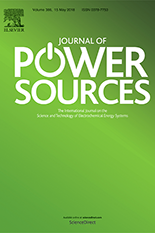News Story
Prof. Pecht's new battery article available free online

Abstract: Electrochemical energy storage systems play an important role in diverse applications, such as electrified transportation and integration of renewable energy with the electrical grid. To facilitate model-based management for extracting full system potentials, proper mathematical models are imperative. Due to extra degrees of freedom brought by differentiation derivatives, fractional-order models may be able to better describe the dynamic behaviors of electrochemical systems. This paper provides a critical overview of fractional-order techniques for managing lithium-ion batteries, lead-acid batteries, and supercapacitors. Starting with the basic concepts and technical tools from fractional-order calculus, the modeling principles for these energy systems are presented by identifying disperse dynamic processes and using electrochemical impedance spectroscopy. Available battery/supercapacitor models are comprehensively reviewed, and the advantages of fractional types are discussed. Two case studies demonstrate the accuracy and computational efficiency of fractional-order models. These models offer 15–30% higher accuracy than their integer-order analogues, but have reasonable complexity. Consequently, fractional-order models can be good candidates for the development of advanced battery/supercapacitor management systems. Finally, the main technical challenges facing electrochemical energy storage system modeling, state estimation, and control in the fractional-order domain, as well as future research directions, are highlighted.
Please follow this link for the full article as made available, for free, by the publisher.
Published April 30, 2018




